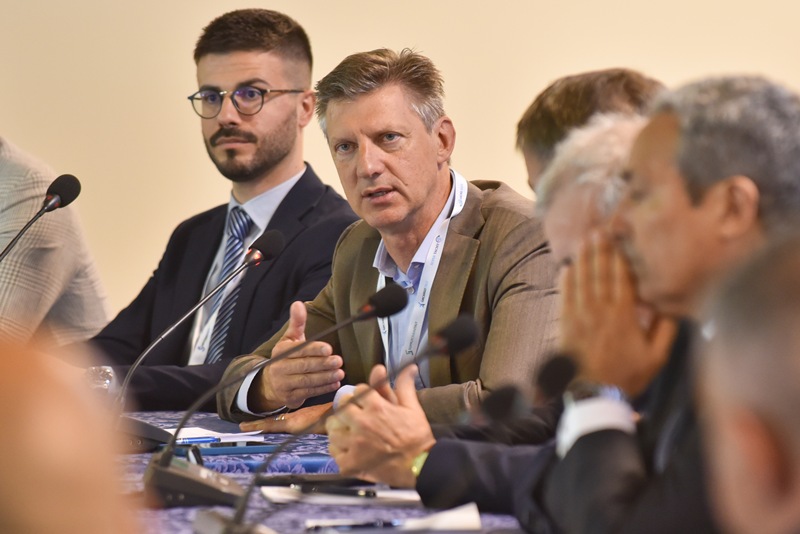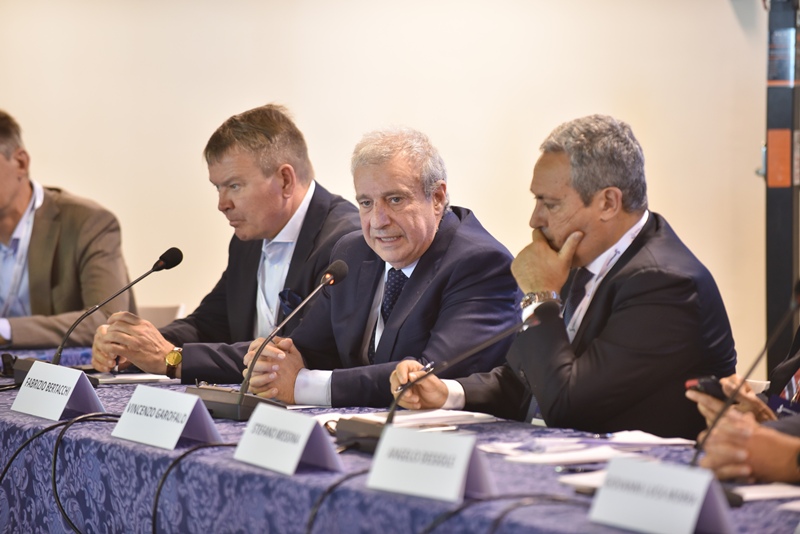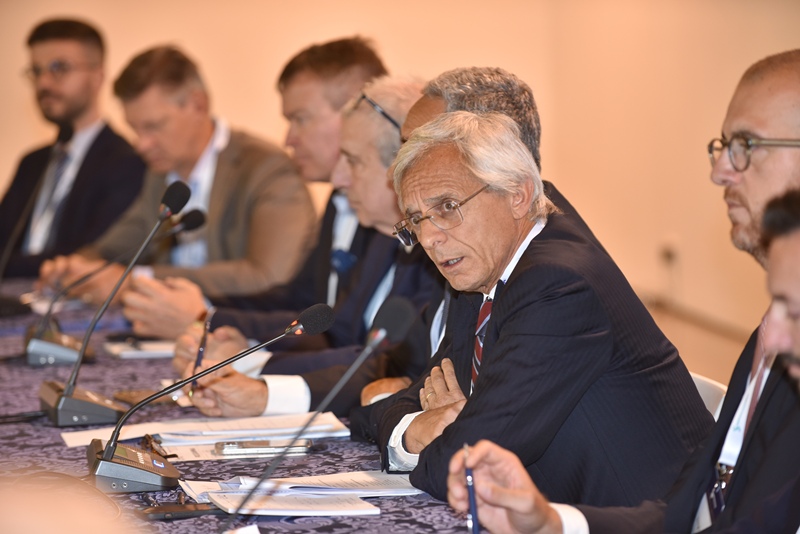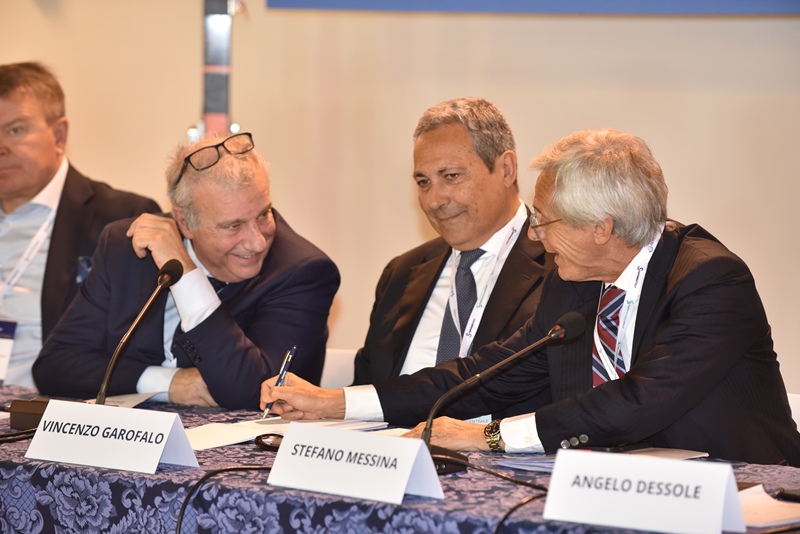Genoa – The southern shore of the Mediterranean increasingly represents the new frontier of development for Italian RO-RO traffic, both according to the shipping companies that reach it and the intermodal operators that exploit its lines.
This conviction, which had already emerged in part during the 1 Business Meeting of SHIPPING ITALY, in 2023, has now been forcefully expressed in the third edition of the event, this year back in Genoa, in the spaces of the Magazzini del Cotone.
The first to highlight
The first to highlight the need to increase freight traffic via ferry to and from the area was Fabrizio Bertacchi, director of the Genoese company Stc – Servizi Trasporti Combinati, now part of Transmec and active in particular in Morocco.
The concept of business communion with North Africa
The concept of business communion with North Africa must pass through transport” he underlined, highlighting the impetuous development of rolling stock traffic via Tanger Med (about 500 thousand vehicle passages each year, compared to the 300 thousand for which it was designed), also at the instigation of European companies established in the country’s free zones such as Renault and Peugeot.
Greater capacity for RO-RO

Related : Turci with Med Roll for the Ro-Ro line between Egypt and Europe
“However, we need greater capacity for RO – RO which have certain departures and arrivals, and not for RO-PAX, which must accommodate other needs”. Even more so, according to Bertacchi, it is necessary for this mode of transport to evolve in terms of regularity of service: “The very concept of RO -RO must change, which must become similar to that of rail transport, not only with days but also with defined times: this is what the European companies that have established themselves in the area are asking of us”
Aِn evolution the concept of RORO in Africa.
Antonio Musso, CEO of Grendi, a company that, as is known, reaches Tunisia and Algeria by offering a RO – RO feeder service (via the cassette system) for containers brought to Cagliari, to the Mito terminal, by Maersk, also expressed his belief in the need for an evolution in this direction.
By introducing RO-RO on these trades

Related : Dr. Abu Khadra write :The “Ro-Ro” line Between Egypt and Italy
“By introducing RO – RO on these trades, we can think about an exact day of arrival or departure, already a big step forward compared to the uncertainties to which container ships are subject” highlighted Musso, noting how customers are willing to accept “one, or even two transhipments” of the loads as long as they enjoy a certain regularity of arrivals (in any case – he specified – on lines with weekly and not daily frequency, and for goods that do not require stringent transit time like fruit and vegetables)
No maximum stabilityof ports of North Africa
Certainly the ports of North Africa, Musso admitted, “do not offer maximum stability”, recalling the cases of the blockade, in Algeria, ordered in 2024 against ships that had touched Moroccan ports, or the sudden stop to the use of a dock in the Tunisian port of Skida. However, they do allow a certain “autonomy of loading and unloading with one’s own means”, which allows to bypass the typical difficulties of ports with less modern and efficient infrastructures.
The southern shore of the Mediterranean

Related : The DFAS line between Trieste and Egypt set sail on its first voyage
Emanuele Becchia, business process manager at DFDS also spoke about the need to look to the southern shore of the Mediterranean, and in particular said he was convinced of the push towards industrialization that the area will receive from the nearshoring policies of European companies.
The Danish company, which entered the Moroccan market in 2023 with the acquisition of Frs Iberia/Maroc, as is known, has activated since last November – after a long gestation supported by the government institutions of the two countries, and supported by Circle – a new RO-RO service between Trieste and Damietta, which will be followed by “other innovations next year”.
A preferable solution

It will take “some time to reach the volumes we expect” – in particular relating to goods such as fruit and vegetables, textiles, machinery, – but traffic is growing. To confirm how useful it is to have ro-ro sea connections between the north and south Mediterranean, during the conference the extreme case of a trailer destined for Tunisia was also mentioned, which reached Trieste from Damietta via the DFDS line, and then arrived in the country by sea from France, a solution that was considered preferable to the road connection from Egypt via Libya.
Source:Shipping Italy




